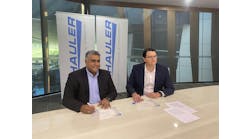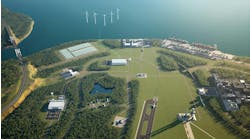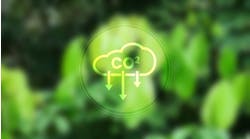Zurich, Switzerland, April 10 - Sri Chamundeswari Sugars is building a 26 MW cogeneration plant (of which 18 MW will be an exportable surplus) at its factory in Karnataka state, southern India. Power comes from burning bagasse, the fibrous residue remaining when sugarcane is crushed to make sugar. ABB is supplying a System 800xA extended automation system, power systems and instrumentation for this project in 2008.
India, the world’s second-largest sugar producer, is encouraging its sugar mills to reap the multiple benefits of investing in bagasse-fueled cogeneration plants, and ABB supplying the automation systems and electrical balance of plant that help make these benefits possible.
Bagasse is the fibrous residue that remains after the sugarcane has been crushed and the juice extracted. It is a biomass fuel with a carbon-neutral rating because it absorbs CO2 during growth and eliminates the use of fossil fuels in power generation.
The great advantage of a bagasse cogeneration plant is that it provides a stable and reliable source of electricity and steam to power the mill and sugar refining process. Significant revenues are generated by selling surplus energy to the grid, production costs are reduced by using fuel (bagasse) that is available onsite and at virtually zero cost, and production downtime caused by grid outages is eliminated.
The fiber that remains after sugarcane is crushed makes a fuel that eliminates the need for fossil fuels in power generation – it even absorbs CO2 while the plant is growing.
ABB has received a number of recent orders to equip bagasse cogeneration plants for sugar mills in India. ABB’s scope of supply ranges from complete electrical systems to instrumentation and control, and also includes comprehensive customer support and remote service. DCS solutions are based on ABB’s award-winning and market-leading Extended Automation System 800xA.



